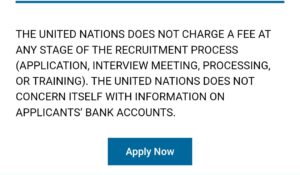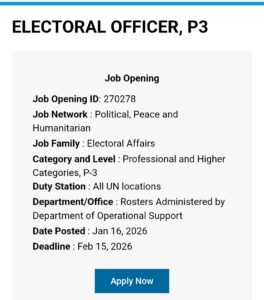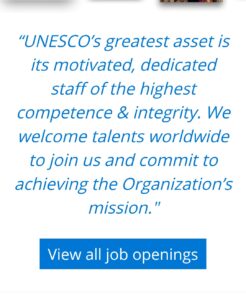After so much research and observations, We’ve compiled a thorough list of In-depth information on Key Words To Make Your Resume Stand Out and when to use them.
Hiring managers can sometimes seem like a scary giant in some cases after hundreds of unrecognized resumes and proposals. A good resume and in some cases well-structured business proposals are key factors in getting that appointment notification in your inbox.
You might be wondering why the recruiting process never seems to go past the interview stage. Simply said, you’d become bored if you watch the same Tv show for a full year.
This is what happens when you use the same tired, monotonous, and repetitive language in your resume as thousands of other applicants.
Recruiters are sick of looking through identical-looking resumes, so if yours is one of them, they won’t even give it a second glance before throwing it in the garbage.
💬 Get Paid in Dollars Just by Chatting With Lonely People
Imagine earning daily dollar income from anywhere in the world — no degree, no experience, no interviews — just your phone or laptop.
People are getting paid simply to chat, listen, and keep others company online. This short ebook reveals:
- ✔ Legit platforms that pay in USD
- ✔ How Africans can register & withdraw successfully
- ✔ What to say to keep conversations paid
- ✔ How beginners start with zero experience
Instant download • Works worldwide • Beginner-friendly
You must discover how to make your resume stand out from the competition by using attention-grabbing keywords.
We’ve assembled a thorough list of these terms, which is fortunate for you. Crucial details on power words, their types, advantages, and when and how to use them in resumes will be the main focus of this article.
How Do Key Words Work To Make Your Resume Stand Out?
Action verbs are another name for “keywords,” which are used to emphasize your expertise and talents on your resume to make it stand out. Keywords make your qualifications for the position stand out by emphasizing your advantages. Keywords improve your chances of progressing to the next stage of the hiring process in your resume and cover letter.
Why Use Key Words?
Keywords are crucial for several reasons. It can help you do the following:
Stronger language
The responsibility of reviewing a lot of resumes and cover letters from candidates fall on several recruiters. They speak in a lot of monotonous, repetitious ways. If you use the same language as everyone else, it will be difficult for you to stand apart.
These strong sentences can quickly grab the recruiter’s attention and convince them that you possess the necessary abilities and credentials for the position.
For instance, use “At Company X, I am responsible for the content” instead.
You might use the phrase “Led Company X’s content creation activities.”
The second one gives you a far stronger impression of competence, which is how these two statements differ from one another.
Enhanced readability and clarity
It’s crucial to describe your prior work experiences using industry terminologies. Making sure that your CV is legible and makes sense to someone outside of your employment function is more crucial. If you describe your skills and accomplishments using industry jargon, a potential employer might not completely comprehend how competent you are. You may use strong phrases to improve your explanations and appear more professional while using clearer language.
As opposed to writing “Team head of Sales representatives in charge of Sales and Lead generation for an optimized online application at Company X,” for instance
You may write, “Oversaw a group of Sales representatives as they generated leads and increased the sales margin by 70% for Company X to increase revenue.”
Diverse language representation
Particularly when explaining identical responsibilities in a position, you could catch yourself using the same terms repeatedly. Keywords can be used in their place to give your explanation more diversity.
The phrase “Responsible for leading a team of five customer support professionals” is an example.
You may include this in your resume: “Managed and coached a group of five customer care agents.”
Various Kinds of KeyWords
There are four different kinds of keywords, which we’ll go over in more depth below:
1 . Verbs of Action
Action verbs are phrases that emphasize the abilities you utilized to succeed in your prior position. This kind of buzzword demonstrates to the company that you possess the skills required to succeed in the job for which you have applied. Action verbs include the following examples:
- Monitored
- Launched
- Crafted
- Completed
- Inaugurated
2. Business Values
Another strong term that makes you appear to be a fantastic fit for the position and the firm is this one. In your CV, you must incorporate key phrases that the firm employs to identify itself. You could add the keywords like “innovate or innovative” to your resume, for instance, if the company prides itself on being innovative.
3. Commonly Used Technical Terms
Nearly every company seeks out candidates that are driven, capable of taking charge, and accountable. These are a few illustrations of the abilities that companies will constantly seek out. Try to speak in a way that conveys that you have these crucial abilities.
4. Key phrases
These are terms that pertain to the job specifications. You may uncover specific keywords you can include in your resume or cover letter by paying close attention to the terms used in the job description or ad. A recruiter will be able to tell right away if you have the qualifications for the job by adding these terms. Keywords can include anything like:
- Designed
- Trained
- Taught
- Programmed
- Analyzed
- Planned
- Quantified
Sector Terminology and keywords
Every industry has its own set of lingo and terminology. Knowing and correctly using these terms and phrases in industry jargon demonstrates to the recruiter that you possess the required hard skills.
Resume Terminologies
They are more akin to keywords that you may learn about from the job description and utilize in your resume to draw attention to your most pertinent qualifications. Use these terms liberally throughout your CV to demonstrate your industry knowledge. However, take caution not to overdo it. Examples include:
- Experience
- Skilled
- Expert
- Facilitated
- Launched
- Demonstrated
Using Keywords Appropriately on a Resume
The summary of your resume, job descriptions, experience and accomplishments part, skill and qualifications section, bullet points, and statements are all places where you may employ powerful language in your resume.
Keywords do not, however, protect them from misuse just because of their name. It’s best to use no more than one or two power words in a phrase. Using these terms repeatedly will turn off recruiters. Instead, add some variation by using several words that best reflect your achievements and those you are familiar with.
50 Keywords you can use in your CV right now.
Keywords for leadership on a resume
1. Grant
2. Assign
3. Comment
4 . Mentor
5. Aid
6. Nurture
7. Promote
8. Administer
9. Assure.
10. Guide
Instead of saying “Led a group of three social media marketers”, you can say, “improved business exposure and brand recognition on Facebook, Instagram, and Twitter.”
Keywords for accomplishments on a resume
11. Achieve
12. Slashed
13. Resulted
14. decline
15. Finished
16. Protect
17. Go beyond
18 . Attain
19. Achieve
20. Exceed
By outsourcing exceptional jobs and tasks, we were able to increase our monthly revenue by 55%.
Keywords for a resume in Management
21. Conduct out
22. Construct
23 Supervise
24 . Monitor
25 Controlled
26. Participate
27. Organize
28 . Discuss
29. Document
30. Examine
An illustration is the applicant tracking system of the company’s coordinated data integrity.
Resume keywords for collaboration and communication
31. Educated
32. Convinced
33. Explicit
34. Aided
35. Recommend
36. Participated
37. Encouraged
38. Directed
39. mentored
40 . Supported
41. Brought to light
42. Advised
Example: Taught new hires about their responsibilities and expectations while mentoring them
Resume keywords that will show off your ingenuity
43. Created
44. Drafted
45. Formulated
46. Sword headed
47. Launched
48 . Built
49. Revision
50. Rejuvenated
🔥 Want to Make Money Online the Right Way?
Discover how smart people are quietly earning with AI, Email Marketing, CPA, LinkedIn, Online Teaching & Content Creation.
This is not theory — it’s a step-by-step system.
👉 Get the Ebook Now








Main Points
To avoid being disqualified at the application screening stage by the hiring manager or the applicant tracking system, power words are crucial additions to your resume since they may help spice it up and offer diversity.
When describing your qualities, talents, and accomplishments on your resume and in your cover letter, you can utilize these terms. You only need to carefully read the job description to find the important duties the company is seeking and use those to your advantage. However, keep in mind that you should only use one power word per phrase and avoid using the same sets of power words again throughout your resume to prevent it from becoming monotonous or losing its significance.